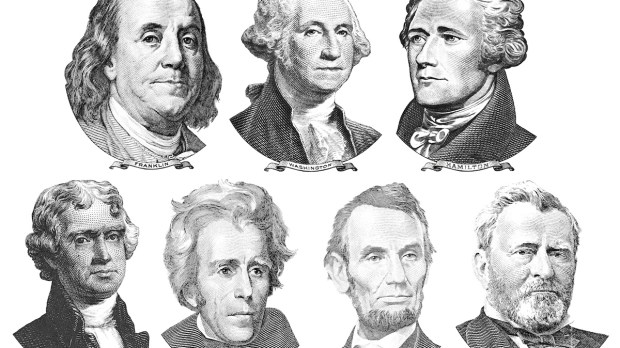Lenten Campaign 2025
This content is free of charge, as are all our articles.
Support us with a donation that is tax-deductible and enable us to continue to reach millions of readers.
A country needs a father; God’s law comes first; and our country’s government won’t work right without religion. These are some of the lessons presidents teach us about the United States of America, and that the Church teaches about leaders worldwide.
But, as a bonus for Presidents’ Day — they also happen to be lessons that presidents learned from other presidents.
First, Abraham Lincoln described how Washington was truly father of his country.
“Away back in my childhood, the earliest days of my being able to read, I got hold of a small book,” he said.
It was Mason Weems’ Life of Washington. But it wasn’t the mythic tales of chopping down a cherry tree or plants spelling “George” that left an impression on the boy Lincoln.
“I remember all the accounts there given of the battle fields and struggles for the liberties of the country,” he said, especially the battle of Trenton, N.J. “The crossing of the river; the contest with the Hessians; the great hardships endured at that time, all fixed themselves on my memory more than any single Revolutionary event.”
That section of Weems’ book isn’t about fighting — it’s about men following George Washington despite intense cold, wet, dark, and fear. What impressed Lincoln was the sacrifice Washington inspired for his country.
“I recollect thinking then, boy even though I was, that there must have been something more than common that these men struggled for,” he said.
That’s the lesson a good parent leaves: That we must always be willing to stick it out, no matter the cost, for the sake of others.
President’s Day is a day to celebrate leaders who did that. “Honor thy father and mother,” is about more than our parents. “God’s fourth commandment also enjoins us to honor all who for our good have received authority in society from God,” says the Catechism.
Second, John F. Kennedy learned from Thomas Jefferson’s commitment to natural law.
At a dinner for Nobel Prize recipients, Kennedy told his guests in the White House: “I think this is the most extraordinary collection of talent, of human knowledge, that has ever been gathered at the White House.”
But he added: “With the possible exception of when Thomas Jefferson dined alone.”
Kennedy’s admiration for Jefferson was so well known that the head of Doubleday books asked him to write a book about the third president. He might, said Kennedy, but it would have to wait. “His varied contributions to American life are not as fully known as they should be. … My present job, however, takes all of my time so I must refuse.”
He wrote that letter the year before his assassination, so the moment never arrived.
You can see Jefferson’s influence from the start, in Kennedy’s inaugural address, where he said, “The same revolutionary beliefs for which our forebears fought are still at issue around the globe — the belief that the rights of man come not from the generosity of the state but from the hand of God.”
That succinctly sums up the key idea Jefferson wrote into the Declaration of Independence: that “all men are endowed by their Creator with certain unalienable Rights, that among these are Life, Liberty and the pursuit of Happiness,” and “to secure these rights, Governments are instituted among Men.”
It also echoes the Catholic teaching that “Public authority is obliged to respect the fundamental rights of the human person,” as the Catechism puts it — and not the other way around.
After his speech, Kennedy recommended people read Thomas Jefferson’s inaugural address, rather than his, saying, “It was better than mine.”
But, third, presidents have also pointed out that there is One we should follow before we follow them.
Just as John F. Kennedy and Thomas Jefferson looked to God as the true source of law and order, great US presidents from the beginning to our times saw devotion to God as necessary for America’s good government.
George Washington said that religion and morality were “indispensable supports” to liberty: Only religious people can be trusted with freedom.
Ronald Reagan described religion’s role in detail: “We also believe in helping one another through our churches and charitable institutions or simply as one friend, one Good Samaritan to another. The Ten Commandments and the Golden Rule are as much a part of our living heritage as the Constitution we take such pride in.”
That points to the eternal King of the Universe, Jesus Christ, who will come to judge the nations not on government, but on love.


